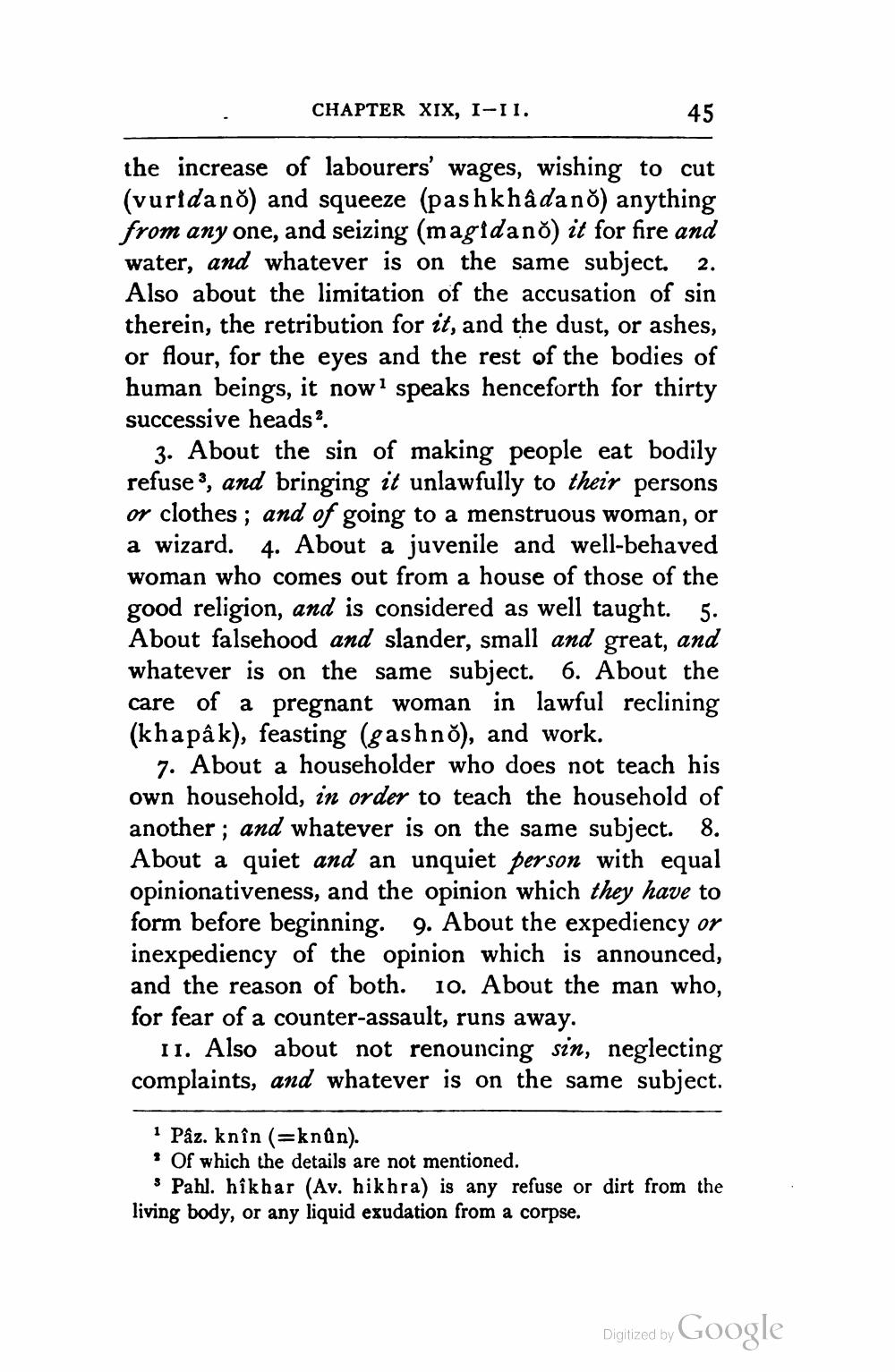________________
CHAPTER XIX, I-11.
45
the increase of labourers' wages, wishing to cut (vurídaně) and squeeze (pashkhâdaně) anything from any one, and seizing (magidano) it for fire and water, and whatever is on the same subject. 2. Also about the limitation of the accusation of sin therein, the retribution for it, and the dust, or ashes, or four, for the eyes and the rest of the bodies of human beings, it now speaks henceforth for thirty successive heads.
3. About the sin of making people eat bodily refuse', and bringing it unlawfully to their persons or clothes ; and of going to a menstruous woman, or a wizard. 4. About a juvenile and well-behaved woman who comes out from a house of those of the good religion, and is considered as well taught. 5. About falsehood and slander, small and great, and whatever is on the same subject. 6. About the care of a pregnant woman in lawful reclining (kha pâk), feasting (gashno), and work.
7. About a householder who does not teach his own household, in order to teach the household of another; and whatever is on the same subject. 8. About a quiet and an unquiet person with equal opinionativeness, and the opinion which they have to form before beginning. 9. About the expediency or inexpediency of the opinion which is announced, and the reason of both. 10. About the man who, for fear of a counter-assault, runs away.
11. Also about not renouncing sin, neglecting complaints, and whatever is on the same subject.
· Paz. knîn (=knûn). ? Of which the details are not mentioned.
Pahl. hikhar (Av. hikhra) is any refuse or dirt from the living body, or any liquid exudation from a corpse.
Digitized by Google




